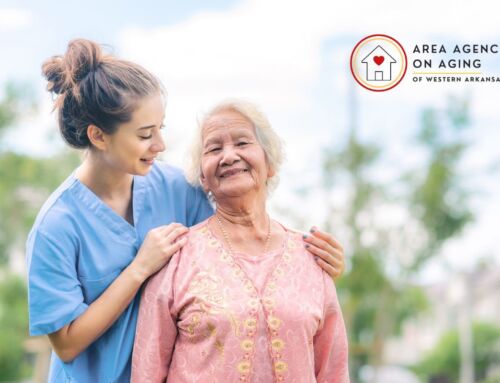Mental health matters at every age—and staying sharp, calm, and connected takes steady effort. Many older adults face stress, fear, memory loss, or sadness that feels new or worse with time. You’re not alone, and it’s not “just getting older.” We’ll walk you through what’s typical with aging and mental health, what isn’t, and how you and your loved one can stay grounded, healthy, and safe—all while aging in place.
Key Takeaways:
- Common mental disorders in older adults: depression, anxiety, and dementia.
- Depression is not a normal part of aging and can be treated with therapy, medication, and rTMS.
- Anxiety affects 10–20% of older adults; symptoms include worry, restlessness, and panic.
- Types of dementia: Alzheimer’s (memory loss), Lewy Body (hallucinations, movement issues), Vascular (stroke-related decline).
- Risk factors for decline: chronic illness, grief, isolation, abuse, financial hardship.
- Early signs of mental health issues: mood changes, memory problems, withdrawal, sleep/eating shifts.
- Loneliness also raises the risk of depression, anxiety, heart disease, and dementia.
- Treatments: CBT, SSRIs, rTMS, physical activity, social connection.
- Barriers: cost, stigma, tech access, shortage of specialists.
- Caregivers also need support to prevent burnout and support mental health through communication and involvement.
- Prevention strategies: movement, mental engagement, strong relationships, meaningful activity.

Aging and Mental Health: Understanding, Supporting, and Strengthening Well-Being in Later Life
Mental health is just as important in later life as it is in any other stage. Yet, when it comes to aging and mental health, many people assume that sadness, forgetfulness, or worry are simply part of growing older. They’re not. These signs may point to real, treatable conditions that deserve attention and care.
At Area Agency on Aging of Western Arkansas (AAAWA), we believe every person deserves to age with dignity, support, and joy. That includes recognizing mental health as a vital part of overall wellness. Below, you’ll find helpful information, practical strategies, and local and national resources to support mental wellness in aging.
Depression, Anxiety, and Dementia Are Common But Not Inevitable
Among the most frequent mental health struggles in aging adults are depression, anxiety, and dementia. These are not "just part of aging"—they are medical issues that can be treated effectively.
Depression may show up as low energy, sleep changes, or a loss of interest in favorite activities. It’s often overlooked in older adults, especially when physical health issues are also present. But depression is not inevitable, and with therapy, medication, or support groups, people often feel much better.
Anxiety can also become more common with age. Worries about health, finances, or being alone may grow over time. Some people experience panic, restlessness, or sleeplessness. With the right treatment, such as talk therapy or gentle medication, anxiety can be managed effectively.
Dementia is a more serious condition that affects memory, communication, and judgment. It includes types like Alzheimer’s, Lewy Body, and vascular dementia. Each type has different symptoms and treatment needs, but early diagnosis always helps create the best care plan.
Learn more about these conditions through resources from the National Institute of Mental Health and WHO’s Mental Health and Older Adults guide.
Brain Health Changes With Age—But Not All Changes Are Harmful
As we age, some shifts in memory or focus are normal. For instance, you might occasionally forget a name or take longer to solve a puzzle. However, if you’re frequently getting lost in familiar places or struggling with daily tasks, it may be more than just aging.
In terms of normal aging, occasional forgetfulness and slower recall are expected. Yet, when memory loss begins to disrupt daily life, it’s worth discussing with a doctor.
Moreover, depression and memory loss are interconnected. People with untreated depression may appear confused or forgetful. Consequently, treating the mood symptoms can often improve cognitive function.
The good news is that specific habits can help maintain brain health. By staying active—physically, mentally, and socially—you can delay or even reduce cognitive decline. National Institute on Aging provides guidance on how to protect your brain over time.
Loneliness and Isolation Can Deeply Affect Aging and Mental Health
One of the most powerful challenges in aging and mental health is social isolation. While being physically alone isn’t always the problem, it’s the feeling of disconnection that matters most.
Furthermore, loneliness increases the risk of depression, anxiety, high blood pressure, and cognitive decline. In fact, recent studies from The Lancet and the Global Burden of Disease project have found that loneliness is a key factor in mental and physical decline in older adults.
Additionally, major life events such as the loss of a spouse, retirement, or chronic illness can lead to fewer social interactions. Therefore, programs that promote connection, such as intergenerational meetups, senior activity centers, or volunteer calls, can make a huge difference.
AAAWA’s Activities program offers opportunities for meals, recreation, and connection across 19 senior centers in western Arkansas. These simple moments of joy and conversation help restore balance and reduce loneliness.
Aging-Related Risk Factors for Mental and Cognitive Health Decline Are Often Preventable
Several factors increase the risk of mental health struggles in later life. These include:
- Chronic illnesses (like diabetes or heart disease)
- Social isolation
- Grief and loss
- Financial difficulty or housing insecurity
- Lack of access to care
- A history of trauma or substance use
Some older adults may also face late-onset substance use, often triggered by grief, pain, or stress. Others experience bipolar disorder or psychosis for the first time. These conditions are more common than many realize and require compassionate care from trained professionals.
To learn more about risk factors and how to reduce them, see the CDC’s Older Adult Mental Health guidance.
Early Signs Matter—And Early Action Helps Most
Aging makes it even more important to monitor for early signs of mental health decline:
- Withdrawal from social activities
- Big mood or energy changes
- Trouble focusing, remembering, or sleeping
- Changes in appetite or weight
- Expressions of hopelessness or fear
- Confusion or unusual behavior
If you notice these signs in yourself or a loved one, don’t wait. These symptoms may be subtle at first, but early care leads to better outcomes.
Check out AAAWA’s Information and Referral services for support in understanding and navigating care options.
Aging and Mental Health: Treatment Works When It’s Tailored to the Individual
There’s no one-size-fits-all approach to aging and mental health. The best treatments for older adults combine personal care with professional guidance.
Talk therapy, especially Cognitive Behavioral Therapy (CBT), helps people reframe thoughts and build confidence. Medication may help, but must be carefully managed due to age-related changes in the body.
rTMS, or repetitive Transcranial Magnetic Stimulation, is a newer treatment that shows promise for depression in seniors who don’t respond to medication. Moreover, research by Ghina Harika-Germaneau further supports its use in elderly patients. Consequently, this treatment offers hope to many who have struggled with traditional methods.
Lifestyle changes also play a big role. Daily movement, better sleep, and a steady routine can support emotional resilience. Support groups and social activities—like those offered by AAAWA—build connection and joy.
If you or someone you know is in crisis, call or text 988, or visit 988lifeline.org. For more resources, explore SAMHSA’s mental health support tools.
Caregivers Are Essential—and Deserve Support Too
Caregivers are often the first line of support for older adults. But caregiving can be emotionally and physically draining.
Burnout can show up as exhaustion, frustration, or hopelessness. That’s why respite care, peer support, and therapy for caregivers are essential tools.
Compassionate communication makes a difference. Speak clearly, listen patiently, and offer reassurance. Use gestures or facial expressions when words are hard to find.
AAAWA offers several caregiver programs with resources, training, and emotional support. And for more tools, the WHO’s Living with the Times toolkit is available for free.
Small Habits Build Mental Strength Over Time
Simple daily habits can improve mental health resilience even with aging.
Stay mentally active with books, puzzles, or learning something new. Brain-stimulating activities help slow cognitive decline and improve mood.
Keep moving, even if just a short walk or light stretching. Physical activity lifts mood and boosts circulation to the brain.
Live with purpose by volunteering, mentoring, or simply checking in on a neighbor. These actions offer meaning and connection.
Create calm with music, prayer, meditation, or hobbies. Just ten minutes of peace a day can reduce stress and bring clarity.
Connect socially, whether through in-person visits or virtual meetups. AAAWA’s activity centers and programs offer many ways to stay engaged.
For more ideas, browse AAAWA’s Blog for tips on healthy aging and emotional well-being.
Barriers Still Exist—But Help Is Available
Many older adults don’t seek mental health care due to:
- Cost: Insurance may not fully cover therapy
- Stigma: Generational beliefs often discourage talking about feelings
- Technology gaps: Telehealth requires devices and skills some don’t have
- Lack of specialists: Few providers specialize in geriatric mental health
Efforts like the WHO’s Mental Health Gap Action Plan (mhGAP) help train general doctors to support older adults. Meanwhile, rTMS and online therapy tools are expanding options for treatment.
AAAWA’s Information and Referral service can connect you with low-cost local resources, including mental health support.
The Impact of Early Connection and Care
Mental health is health. Aging doesn’t mean giving up joy, purpose, or peace of mind. With the right support, older adults can thrive—mentally and emotionally.
Every person deserves to feel seen, heard, and supported. Whether you’re reaching out for yourself or helping someone else, know that healing begins with one conversation.
Let’s Support Mental Wellness Together
Reach Out for the Help You Deserve
At Area Agency on Aging of Western Arkansas, we’re here to listen and connect you to the support you need. Whether it’s mental health care, caregiver help, or everyday services, we treat each person with dignity and care. You don’t have to face aging and mental health challenges alone. Contact us today to get started—we’re ready to help.


